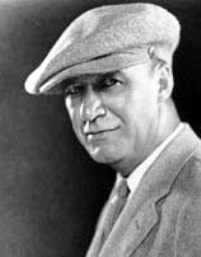Related Research Articles
In Irish legend Aibell was the guardian spirit of the Dál gCais, the Dalcassians or Ó Bríen clan. She was the ruler of a sídhe in north Munster, and her dwelling place was Craig Liath, the grey rock, a hill overlooking the Shannon about two miles north of Killaloe. Aibell also had a lover and a magic harp.

"Molly Malone" is a popular song set in Dublin, Ireland, which has become its unofficial anthem.
Charley Case was a blackface comedian in America who wrote and sang vaudeville parodies of the 19th century ballad style. He influenced F. Gregory Hartswick, who wrote similar songs.
In Ireland, a rebel song is a folk song whose lyrics extol the deeds of factual events/participants in any of the various armed rebellions against English, and later British, of unwanted rule in Ireland. Songs about older rebellions were long popular with most Irish nationalists; more recent songs are associated with supporters of physical force Irish republicanism.

Thomas Adrian Sands is an American pop music singer and actor. Working in show business as a child, Sands became an overnight sensation and instant teen idol when he appeared on Kraft Television Theater in January 1957 as "The Singin' Idol". The song from the show, "Teen-Age Crush", reached No. 2 on the Billboard Hot 100 and No. 1 on Cashbox.

Mae Marsh was an American film actress with a career spanning over 50 years.
"The Solitary Reaper" is a lyric by English Romantic poet William Wordsworth, and one of his best-known works. The poem was inspired by him and his sister Dorothy's stay at the village of Strathyre in the parish of Balquhidder in Scotland in September 1803.
"Mary from Dungloe" is an Irish song originally penned by a Donegal stonemason Pádraig Mac Cumhaill in 1936, telling a tragic story of love and heartbreak. A modified version of the song was re-released by The Emmet Spiceland Ballad Group and reached number 1 in the Irish singles music chart on February 24, 1968. This success prompted the creation of the Mary From Dungloe International Festival, an Irish music festival held in Dungloe, in northwest Ireland. There exists two versions of the song, the original long version by Pádraig MacCumhaill and a shorter version by Colm O'Laughlin, the latter version is the most popular today.
"The Wind That Shakes the Barley" is an Irish ballad written by Robert Dwyer Joyce (1836–1883), a Limerick-born poet and professor of English literature. The song is written from the perspective of a doomed young Wexford rebel who is about to sacrifice his relationship with his loved one and plunge into the cauldron of violence associated with the 1798 rebellion in Ireland. The references to barley in the song derive from the fact that the rebels often carried barley or oats in their pockets as provisions for when on the march. This gave rise to the post-rebellion phenomenon of barley growing and marking the "croppy-holes," mass unmarked graves into which slain rebels were thrown, symbolizing the regenerative nature of Irish resistance to British rule. As the barley will grow every year in the spring this is said to symbolize Irish resistance to British oppression and that Ireland will never yield and will always oppose British rule on the island.

Dervish is an Irish traditional music group from County Sligo, Ireland which has been described by BBC Radio 3 as "an icon of Irish music". They were formed in 1989 by Liam Kelly, Shane Mitchell, Martin McGinley, Brian McDonagh, and Michael Holmes and have been fronted by singer Cathy Jordan since 1991. They represented Ireland in the final of the Eurovision Song Contest 2007, singing a song written by John Waters and Tommy Moran. In 2019 they released an album on the US Rounder Records label called The Great Irish Song Book featuring a selection of classic Irish songs sung by a number of well known singers including Steve Earle, Andrea Corr, Vince Gill, Kate Rusby, Imelda May, Rhiannon Giddens, The Steel Drivers, Brendan Gleeson, Abigail Washburn, and Jamey Johnson. In 2019 they received a lifetime achievement award from the BBC.

John Farrell MacDonald was an American character actor and director. He played supporting roles and occasional leads. He appeared in over 325 films over a 41-year career from 1911 to 1951, and directed forty-four silent films from 1912 to 1917.
"Has Anybody Here Seen Kelly?", with music and lyrics by C. W. Murphy and Will Letters (1908), is a British music hall song, originally titled "Kelly From the Isle of Man". The song concerns a Manx woman looking for her boyfriend during a visit to London. It was adapted for American audiences by William McKenna in 1909 for the musical The Jolly Bachelors. Kelly is the most common surname on the Isle of Man.
The Miami Showband were an Irish showband in the 1960s and 1970s led by singer Dickie Rock and later by Fran O'Toole. They had seven number one records on the Irish singles chart. Band members Fran O'Toole, Tony Geraghty, and Brian McCoy were killed in the Miami Showband killings in 1975 during The Troubles when returning from a performance in County Down, Northern Ireland.
Lord Saltoun and Auchanachie, is a Scottish folk song.

Dáithí Sproule is a guitarist and singer of traditional Irish music. His niece is the singer Claire Sproule.
"A Brisk Young Sailor " is a traditional folk ballad, which has been collected from all over Britain, Ireland and North America. The song originates in England in the early 1600s.

Transatlantic Sessions is the collective title for a series of musical productions by Glasgow-based Pelicula Films Ltd, funded by- and produced for BBC Scotland, BBC Four and RTÉ of Ireland. The productions comprise collaborative live performances by various leading folk, bluegrass and country musicians from both sides of the North Atlantic, playing music from Scotland, Ireland, England and North America, who congregate under the musical direction of Aly Bain and Jerry Douglas to record and film a set of half-hour TV episodes. The Television director is Mike Alexander and the producer is Douglas Eadie.
Transportation ballads are a genre of broadside ballad some of which became an important part of the folk song traditions of Britain and Ireland. They concern the transportation of convicted criminals firstly to the American colonies and then to penal colonies in Australia. Transportation ballads were published as broadsides,. Many have passed into the folk tradition and have been collected subsequently from traditional singers.
References
- ↑ https://www.amazon.co.uk/The-Hearts-Wonder-Tommy-Sands/dp/B000005CPR | Performed by Tommy Sands with research documented in CD sleeve.